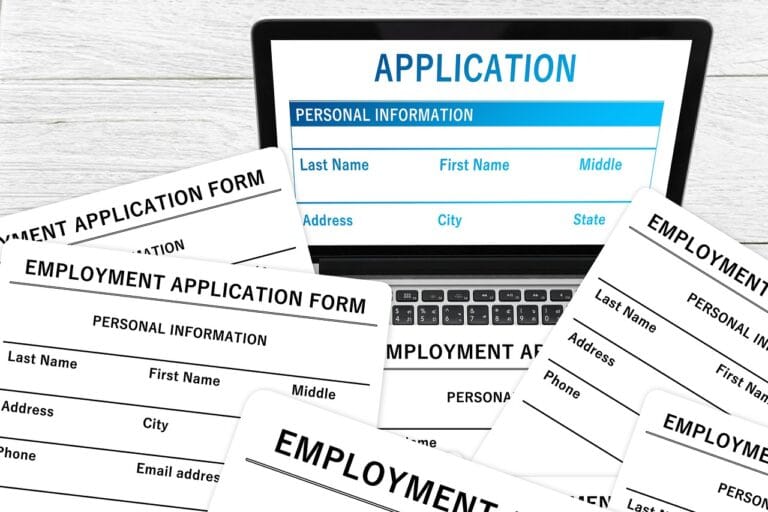How Long Does It Take to Pivot Careers Remotely?
You’ve lost your remote job — and now you’re wondering how long it will take to switch paths, learn new skills, and earn income again. The internet is full of extremes: “Learn to code in 3 weeks!” vs. “Expect a 12-month transition.”
The truth? Most remote career pivots take 30 to 120 days — but it depends on your starting point, skill stack, and how smartly you sequence the shift.
Let’s break down what that pivot really looks like — and how to speed it up safely.
✅ Summary: How Long Does a Remote Career Pivot Take?
- Light pivots (within same industry/skill set): 30–45 days
- Mid-level reskilling or role change: 60–90 days
- Full career reinvention: 90–120 days, with faster income if done right
- Tools like FlexJobs and The Ladders accelerate the process by filtering out time-wasters
The 3 Pivot Speeds (And How to Know Yours)
1. Light Pivot (30–45 Days)
Same industry, same skills — just repositioned. Example: remote operations manager → remote onboarding specialist.
You already have 80% of what’s needed — you just need to reframe your résumé, update a few keywords, and start applying.
2. Moderate Pivot (60–90 Days)
New function, same foundational strengths. Example: support specialist → QA analyst.
Here you’ll need 1–2 microcerts, a mini portfolio, and a clear narrative shift.
3. Hard Pivot (90–120+ Days)
New industry, new skills. Example: admin → remote UX designer or digital PM.
This takes more than learning — you need trust signals (certs, mock work, testimonials) and smarter job filtering.
🎯 Avoid job board chaos: Use FlexJobs to focus only on remote-first, entry-friendly gigs that align with your new path.
🧠 FAQ: How Long Career Pivots Really Take
Can I really switch careers in under 3 months?
Yes — especially for light or moderate pivots. With focused daily effort and the right job boards, many remote workers land new roles in 45–90 days.
What slows down a remote career pivot?
Too many applications, unclear niche, skipping portfolio work, and relying only on big platforms like LinkedIn. Lack of targeted positioning is the biggest delay factor.
Do I need to stop working while I pivot?
No. Many successful switchers take contract gigs via FlexJobs or freelance during the transition. Income during the pivot reduces stress and boosts confidence.
The Pivot Timeline: A Realistic Breakdown
Here’s what a 90-day remote pivot often looks like:
| Timeframe | Milestone |
|---|---|
| Week 1–2 | Skill audit + decide pivot direction |
| Week 3–4 | Take a short course or cert (Agile, UX, SEO) |
| Week 5–6 | Build a portfolio or case study project |
| Week 7–8 | Apply smartly (targeted résumé, job boards) |
| Week 9–10 | Interviews, callbacks, offer negotiation |
| Week 11–12 | Start new role or contract |
💡 Many skip the “decide direction” phase and apply blindly — this adds weeks of wasted effort.
What Speeds Things Up?
- Persona-Mapped Job Boards:
Sites like The Ladders filter by income and experience level, removing noise. - Mini Credentials with Resume Weight:
Use platforms like Educative or Coursera — stick to <20-hour courses that show up in search filters. - Portfolio-First, Not Resume-First:
Even mock work can show competence. One good walkthrough can beat 30 bullet points. - Networking via DM, Not Comments:
Direct outreach to hiring managers on LinkedIn cuts application cycles in half.
“I pivoted from customer support to onboarding in 62 days — one Notion template I made landed three interviews.” — Rachel from Vancouver
🚀 FlexJobs Subscription
Curated remote job board with premium listings.
30% off for RWC readers – $29.95. Get This Deal🚀 Avast Premium Security
Security suite to keep your remote work devices protected.
Save up to 40% today – $39.99. Get This Deal🚀 NordVPN Subscription
VPN for secure remote work connections and privacy.
Up to 63% off annual plans – $59.88. Get This Deal
What Slows You Down?
- Applying to 50+ roles a week with no niche
- “Hoping” your old job returns
- Relying solely on AI résumé builders
- Waiting to be 100% ready before starting outreach
This is why smart filtering tools matter — avoid the trap of working hard with no traction.
🔎 Skip mass-market boards — FlexJobs and The Ladders help align your pivot to roles you can actually land.
Don’t Burn Out Mid-Pivot
Switching careers is emotional. Even if you’re motivated, the timeline can wear on you. Here’s how to buffer:
- Set weekly output goals, not just application goals
- Cowork virtually via tools like Focusmate or Discord groups
- Budget a micro-win every 7 days — whether it’s a reply, a cert, or a mock-up
🎯 Track momentum — not just results. Interviews are lagging indicators. Show-up rate is your leading edge.
What If You Need Income Immediately?
You don’t have to “wait” until your pivot is done:
- Freelance your old skills (Upwork, Contra)
- Pick up short-term contracts on FlexJobs
- Offer project-based help via LinkedIn outreach (Notion builds, system audits, customer training)
🧠 Most pivots stall when income anxiety takes over. Create income bridges, not panic bridges.
🔧 Ready to Timebox Your Pivot?
📌 Still stuck in limbo applying to jobs that don’t fit? Filter smarter — try FlexJobs and focus on roles tailored for pivots and career changers.
🎯 Want to target $100K+ jobs that match your pivot? Use The Ladders — it’s curated, credible, and pivot-aligned.
💡 Don’t guess your timeline — control it. Remote pivots don’t take forever if you map them right.







